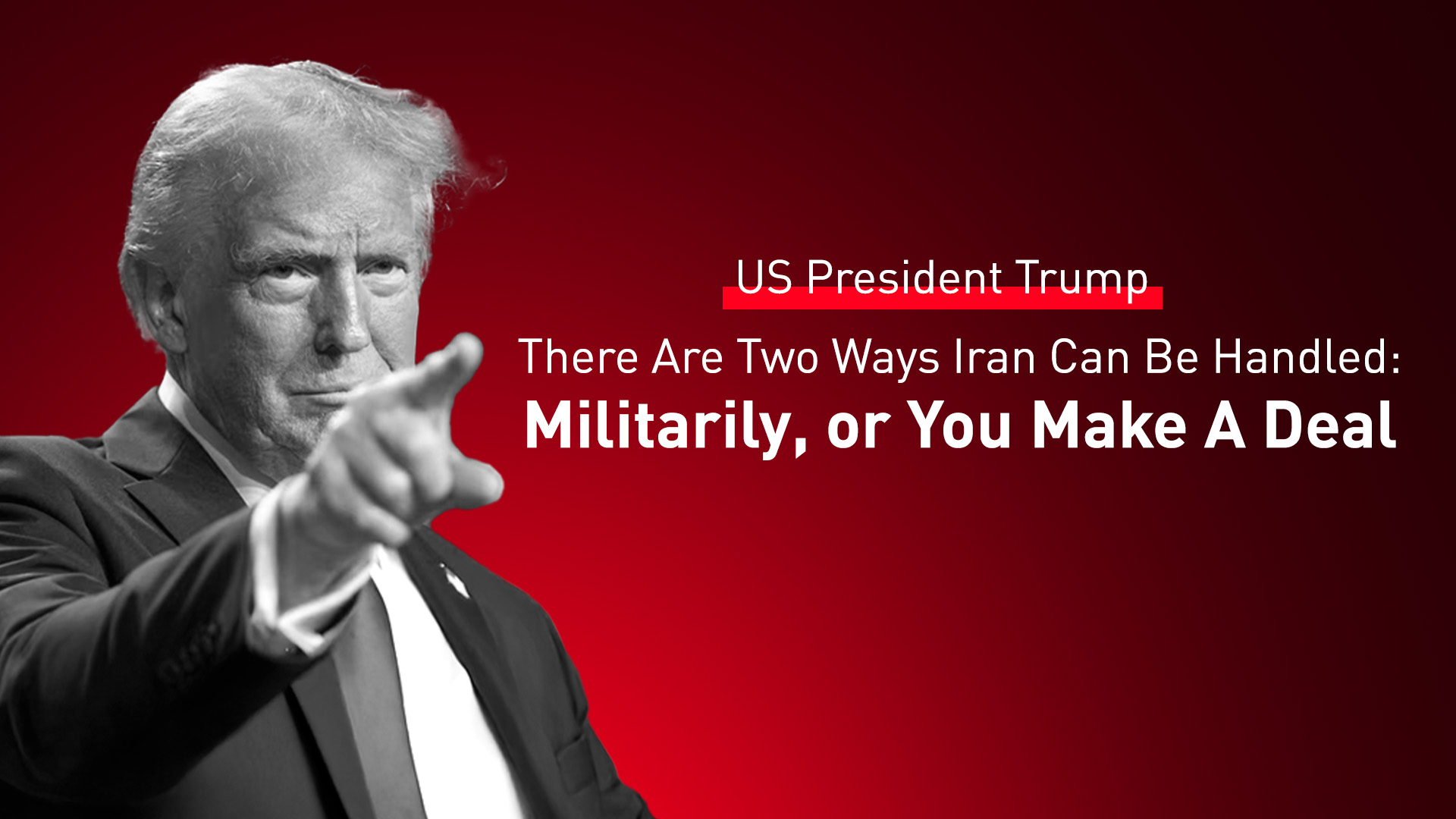Trump Says He Offered Iran Restart of Nuclear Talks; Tehran Denies Receiving Proposal
Trump’s letter appears to be the opening bid to see if Iran’s new vulnerability will make it open to negotiations, as The New York Times suggested.

WASHINGTON DC, United States (Kurdistan24) - On Friday, U,S. President Donald Trump made the surprise statement that he had written a letter to Iran’s Supreme Leader, Ayatollah Ali Khamenei, offering to resume negotiations over Iran’s nuclear program.
Trump’s statement was unexpected for two reasons. First, he, himself, in his first term, had left the original nuclear deal, concluded by Barack Obama in 2015 (formally known as the Joint Comprehensive Plan of Action—JCPOA.)
Secondly, Trump’s offer appeared to be in strong contradiction to the “maximum pressure” campaign that he has already adopted.
Moreover, Tehran, for its part, denied having received any such letter from Trump, while the Foreign Minister rejected any negotiations under pressure, echoing a position expressed earlier by Khamenei.
Trump’s Statements
Trump’s offer, first made on Fox News, was accompanied by the threat of military action, if Tehran did not accept negotiations. Excerpts of his Fox News interview, which was filmed on Thursday, were broadcast on Friday, while the entire interview airs on Sunday.
In his interview, Trump said that he had sent the letter “yesterday,” which would be Wednesday. Trump did not explain how the letter was delivered, and it is unclear why he says the letter was sent and Tehran denies receiving it.
On Fox News, Trump said, ”There are two ways Iran can be handled: militarily, or you make a deal,” adding, “I would prefer to make a deal, because I’m not looking to hurt Iran. They’re great people,”
“If we have to go in militarily, it’s going to be a terrible thing for them,” Trump continued. “The other alternative is we have to do something, because you can’t let them have a nuclear weapon.”
The New York Times noted that as a result of the conflict—going back to Oct. 7, 2023—between Israel, on the one hand, and Iran and its proxies, on the other, Iran’s defenses have been significantly weakened, and, militarily, it is in an unusually exposed position.
Thus, as the Times suggested, “Trump’s letter appears to be the opening bid to see if Iran’s new vulnerability will make it open to negotiations.”
Later on Friday, in the Oval Office, Trump told journalists that Iran was getting very close to acquiring the fissile material it would need to build a nuclear bomb.
“We’re down to final strokes with Iran,” he said. “We can’t let them have a nuclear weapon.”
Iranian Response
Even as Tehran denied that it had received any letter from Trump, it also rejected the prospect of talks under current conditions.
“We will not enter any direct negotiations with the U.S., so long as they continue their maximum pressure policy and their threats,” Iranian Foreign Minister Abbas Araghchi told Agence France Presse.
Araghchi’s statement was consistent with the position expressed by Khamenei last month, after Trump announced the resumption of the maximum pressure campaign that he had pursued in his first term.
At that point, Khamenei rejected the idea of any new talks with the U.S., as the Times reported. Khamenei said that Iran could not trust that the U.S. would respect its side of the agreement, particularly after Trump had withdrawn from the previous accord.
Khamenei is the ultimate decision-maker in Iran. Possibly, Trump’s threat of military action might change his view, but that remains to be seen, even as it also remains to be seen, whether Trump would actually follow through on his threat, if there are no talks.
Iran International, citing IRNA (Islamic Republic News Agency), reported early on Saturday that the Deputy Commander of the Iranian Army’s Ground Forces, Brig. Gen. Nozar Nemati, affirmed Iran’s ability to deal with any threat to the country.
“The armed forces, especially the Army, are always ready to defend the ideals of the Islamic Republic and protect the country’s borders,” Nemati said.